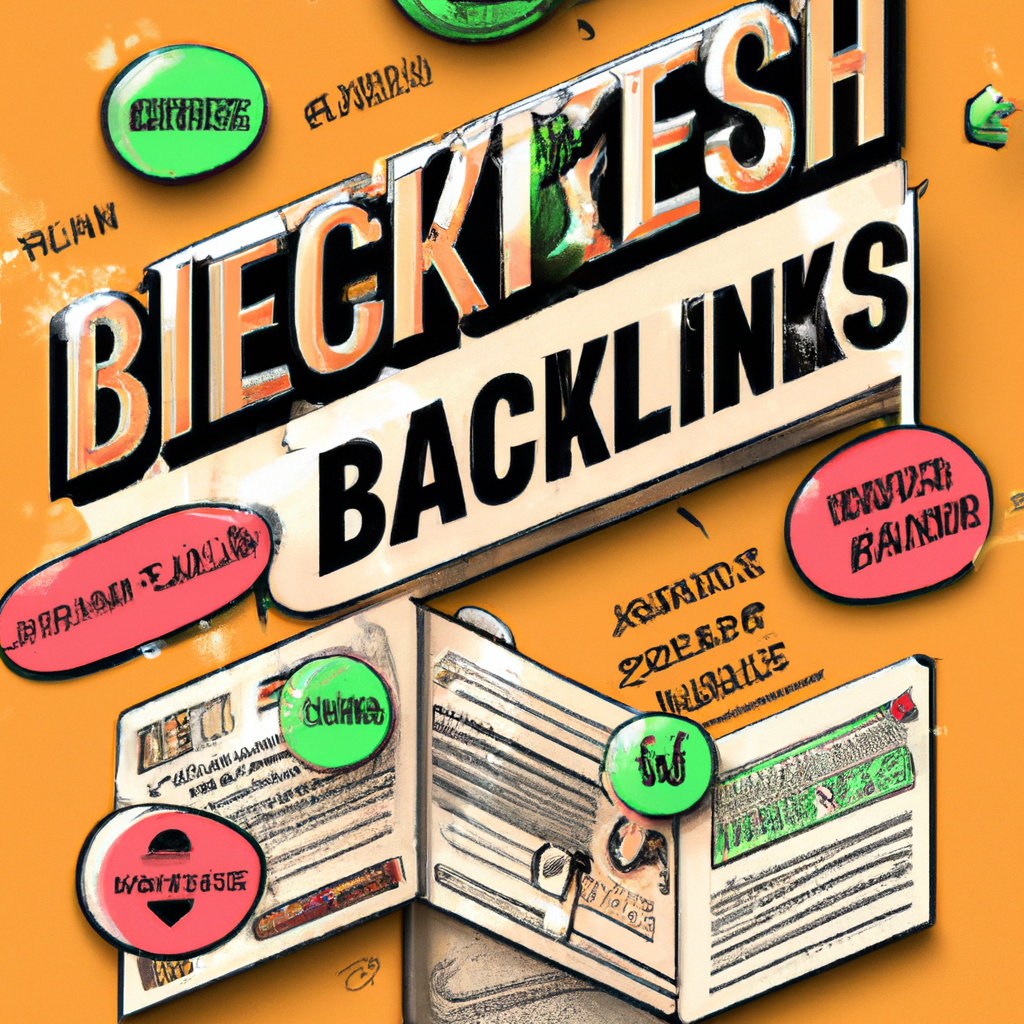Keyword Difficulty
Key Takeaway:
- Understanding Keyword Difficulty is critical for your SEO strategy: Keyword Difficulty measures the competition and effort required to rank for a specific keyword. By analyzing this metric, you can identify high-value keywords that are worth targeting and avoid wasting time and resources on overly competitive ones.
- Factors that Affect Keyword Difficulty include ranking metrics, page and domain authority, and search volume. Content relevance, link profile, and number of referring domains also play a crucial role. By analyzing these elements, you can estimate the difficulty score for a keyword and plan your SEO strategy accordingly.
- Maximizing Keyword Research Using Keyword Difficulty Analysis involves finding the sweet spot between good and easy keyword difficulty scores. The goal is to target keywords that have enough search volume and relevance to attract traffic but are not too competitive to rank on the first page. Using the right tools and techniques, you can find these keywords and optimize your chances of success.
Introduction
Keyword research is a critical component of any successful SEO strategy. However, ranking for a high volume keyword isn’t as easy as it used to be. This is where keyword difficulty comes into play. In this section, we’ll explore the concept of keyword difficulty and why it’s important for your SEO efforts. We’ll also touch on how to determine the keyword difficulty of various search terms and how to use this information to your advantage.
Keywords: keyword difficulty, SEO strategy
When it comes to SEO, it’s all about staying ahead. To do this, you need to understand keyword difficulty. This metric looks at search volume, page/domain authority, and more to work out how hard it is to rank for a particular keyword.
It’s not just numbers that count – content relevance, link profile, and referring domains all play a part too. Pick keywords with good difficulty scores. Aim for the first page of results.
Measuring keyword difficulty means checking the level of competition in the top 10 rankings. There are tools to help make decisions. Mastering SEO can get your site to the top of SERPs. This takes a strong link profile and effective content marketing strategies.
Optimizing keyword usage in content is key. Good keyword research practices help you use keywords effectively. Consider a free ebook on usage practices.
Ignoring keyword difficulty metrics can have bad effects. Invest time into learning them – it’s like solving a Rubik’s Cube blindfolded! Strategy, patience, and lots of trial and error are needed.
Understanding Keyword Difficulty
When it comes to SEO, understanding keyword difficulty is essential to achieve higher rankings and attract more traffic to your website. In this section, we’ll dive into the various metrics that determine keyword difficulty, including ranking metrics, page authority, domain authority, and search volume. Additionally, we’ll explore the factors that affect this metric, giving you the tools and knowledge to select and prioritize the right keywords for your content.
Keywords: ranking metrics, page authority, domain authority, search volume
Ranking in search engines is based on various metrics. They are page authority, domain authority and search volume. It’s important to comprehend these metrics to make a successful SEO plan and get more visitors to the website.
We can make a table explaining the four main ranking factors. These are ranking metrics, page authority, domain authority and search volume. This table helps us to understand how these elements are linked and their effect on the keyword difficulty.
| Ranking Factors | Meaning |
|---|---|
| Ranking Metrics | Measures used by search engines to rank websites |
| Page Authority | Site’s position or reputation within a certain subject |
| Domain Authority | Measure of trustworthiness of a website (based on its history) |
| Search Volume | Number of searches done by users for a particular keyword |
Other elements may also affect keyword difficulty. These include: content relevance, link profile quality and number of referring domains. Content relevance means how well the website content fits user intent for particular keywords. Link profile quality evaluates the quality of links coming from other sites. The number of referring domains tells us how many unique sites link back to your website.
Recognizing these sorts of SEO metrics can help identify great chances for improving content around certain keywords. A low keyword difficulty score implies it will be straightforward to rank on the front page of the SERPs. Therefore marketers should focus their attention on creating relevant and useful content that relates to user requirements and also using various SEM tools like Semrush or Ahrefs.
Sub-heading: Factors that Affect Keyword Difficulty
To decide the level of difficulty of optimizing a specific keyword, it is important to take into account various Factors that Affect Keyword Difficulty. These include the search engine ranking metric and the authority of the web page or domain. Search volume is another important factor in measuring keyword difficulty.
To understand search engine metrics better, website owners must think of their website’s page authority, domain authority, and how much low-quality content appears in the organic rankings. It is also key to identify the linking profile for each page, number of referring domains, and backlink relevancy. These influence traffic volumes and how hard it will be to rank for certain keywords.
The table below explains extra factors that affect keyword difficulty:
| Factors Affecting Keyword Difficulty |
|---|
| Content Relevance |
| Link Profile |
| Number of Referring Domains |
For example, if many websites link to a certain site, it is easier for search engines to recognize the website as legit and reliable compared to competitors without those links. This means that having content related to what people are searching for on Google, plus good link profiles from referring domains in your business niche, increases the chances of ranking higher than your competitor sites.
It is vital to do a thorough analysis when finding out these countless interlocking components. They can either open tremendous opportunities or discourage you from investing heavily in some keywords’ organic visibility. So, why go for just any link when you can have a link profile that makes your rivals jealous?
Keywords: content relevance, link profile, number of referring domains
To rank high in SEO, content relevance, link profile and the number of referring domains are must-have elements. The quality of content, how it relates to users’ search queries, defines relevance. A strong link profile with authoritative sites also boosts the ranking. Referring domains tell how many backlinks point towards a site. These all add to keyword difficulty, which affects top ranking in the SERPs.
Factors like content relevance can be fine-tuned with metadata optimization for every page. Quality links from reputable sources boost domain authority. Examining SERPs results helps find keywords related to your audience, reducing the competition.
Many site owners face difficulties in ranking webpages; one such firm had been struggling for years before experts adjusted their keyword difficulty metrics, which led to top positions on Google searches. This resulted in over five-fold increase in organic web traffic and immense growth in revenue streams, among other benefits. Knowing the difficulty of your keywords is essential for success in SEO.
Importance of Keyword Difficulty in SEO Strategy
Keyword difficulty is a crucial factor in any SEO strategy. In this section, we’ll explore the significance of keyword difficulty and how it can be used to improve website ranking. We’ll dive into the top ranking keywords, search intent, and relevance to understand how businesses can optimize their content for better web visibility. With Keyword Difficulty, relevant keywords can help maximize search engine visibility, contributing to increased organic traffic to your site.
Keywords: top ranking, search intent, relevance
To rank well in search engines, you need to understand what the user wants and be relevant to their query. Keyword difficulty is an important metric.
Page authority, domain authority, and search volume all affect keyword difficulty. Additionally, content relevance, link profile, and number of referring domains are also key.
If you analyze keyword difficulty correctly, it can result in more organic traffic for your website. If the difficulty score is good, it means there’s less competition on the first page.
To measure keyword difficulty, you have to look at the top 10 rankings for a given keyword and evaluate the authority of each website as well as its content relevance.
Tools like Google AdWords Keyword Planner and Moz’s Keyword Explorer can help with this. You should also develop SEO skills to successfully position your website, with quality links and visual marketing.
Understanding search intent and being relevant to specific queries can make optimizing keyword usage in content easier. A free eBook about this can be a great resource for improving your SEO strategy.
Maximizing Keyword Research Using Keyword Difficulty Analysis
Maximizing the potential of our keyword research through keyword difficulty analysis is crucial for online success. In this section, let’s explore the benefits of finding the right balance between good and easy keyword difficulty scores. We’ll also take a look at how this analysis can help us achieve our goal of ranking on the first page of top search engines.
Keywords: good keyword difficulty, easy keyword difficulty score, first page
Getting on the first page of search results? You need a good keyword difficulty and easy keyword difficulty score. This means a keyword with high search volume and low competition. Easy keyword difficulty? Low competition and a positive trend in popularity over time. The first page of search results? That’s the top 10 on Google, where people usually find what they’re looking for.
To measure keyword difficulty, consider ranking metrics like page authority, domain authority and search volume. Plus, content relevance, link profile and number of referring domains all affect the keyword difficulty.
To get the best SEO strategy, understand the top ranking keywords and their search intent and relevance. Calculate the difficulty score of each potential keyword. There are tools to make this easier.
For web strategies, content optimization, visual content marketing and keyword usage… Mastering SEO skills is key. Check out free ebook resources for best practices for reaching organic traffic growth.
Don’t forget, there’s more to the numbers than meets the eye. To succeed at SEO, uncover the hidden gems of keyword difficulty metrics.
Beyond the Numbers: Digging Deeper into Keyword Difficulty Metrics
Keyword difficulty metrics are essential to understand to ensure that the keywords for your content are optimized to rank higher in search results. However, going beyond the numbers and digging deeper into these metrics can uncover further insights into keyword difficulty, such as analyzing the content relevance, authority, and search results.
Keywords: content relevance, authority, search results
When it comes to keyword difficulty, there are many factors at play. Content relevance, authority and search results are some of the most important.
Analyzing keyword difficulty requires looking at metrics like content relevance, page authority, domain authority, and search volume. Content relevance is how closely the content matches a user’s search intent. Authority measures the power and trustworthiness of a website. Search results show the competition level by examining top-ranking pages.
Businesses should create relevant and superior content for their user searches. This increases authority with authoritative links pointing back. It’s vital to consider these parameters for desktop and mobile optimization. The goal is to achieve higher rankings on SERPs and outrank competitors.
It’s essential to keep an eye on these parameters to stay competitive and succeed. This requires developed SEO skills to drive enough traffic for the desired audience size.
How to Calculate Keyword Difficulty
Calculating keyword difficulty is crucial for any SEO strategy. In this section, we’ll dive into the nitty-gritty of determining keyword difficulty scores and look at the top 10 keywords with high difficulty scores. Get ready to learn how to up your SEO game and increase traffic to your website.
Keywords: difficulty score, top 10
SEO professionals use a difficulty score from 1-100 to determine the rank difficulty of a keyword. This score predicts how hard it will be for content to rank on the first page of SERPs. To get the score, one looks at the top 10 ranking URLs.
Analyzing page authority, domain authority, and relevant content of the URLs helps create a strategy to optimize content and boost chances of ranking. HTML tags can be used to compare metrics like search volume, referring domains, domain age, content relevance, and other ranking indicators. Different columns may be included in the table, depending on the SEO tool.
Though keyword difficulty analysis focuses on high SERP rankings, traffic potential is also important. It involves finding keywords with high search volumes and assessing their relevance to search intent.
For successful positioning, one must understand how hard it is to rank in SERPs. There are tools to measure keyword difficulty accurately. However, technical optimizations and creative practices that consider human communication elements are needed for successful positioning. Five top tools are available to make measuring keyword difficulty easier.
Top 5 Tools for Measuring Keyword Difficulty
Knowing the difficulty for ranking specific keywords is crucial in ensuring that websites show up in search engine results. In this section, we present the top five tools that can accurately measure keyword difficulty. Using these tools can help website owners and marketers make informed decisions on their keyword research to improve their website ranking, increase traffic, and ultimately generate more leads and sales.
Keywords: keyword research, Google says links, keyword health benefits garlic
Keyword research is key for any successful SEO strategy. As Google says, links are vital for top rankings. It’s also essential to consider the potential benefits of using health-related keywords like “garlic” in content optimization.
When researching keywords, marketers must consider different ranking metrics. This includes page authority and search volume. But, also keyword difficulty, such as content relevance and the link profile of the site.
It’s possible to make keyword choices with difficulty scores and top 10 results. But, branching out to explore less orthodox keyword options can be beneficial. For example, use “health benefits of garlic” in content to attract niche audiences.
A mix of effective links, high-quality content, and visual marketing is needed for top rankings. Staying on top of SEO trends can drive traffic to a site and result in lasting success online. Free ebooks are available to help optimize keyword usage.
Mastering SEO Skills for Successful Site Positioning
When it comes to successful website positioning, mastering SEO skills is key. In this section, we’ll dive into the sub-sections of marketing web keywords, link content keywords, and visual content marketing keywords. With the right approach to these different types of keywords, you can improve your keyword difficulty and climb the search engine rankings.
Keywords: marketing web, link content, visual content marketing
Marketing on the web? You need to understand many factors. Valuable link content and visual content marketing strategies are two of them. This is essential to increase website traffic and customer engagement.
For successful SEO, you must optimize for marketing web, link content, and visual content. Quality links, graphics, videos and other multimedia can help. It improves authority scores and increases domain strength. Visual content marketing also boosts search engine ranking and increases customer engagement.
Visuals play a big role in creating audience retention. Linking informative content with engaging visuals helps keyword difficulty scores. Plus, people spend more time engaging with visuals compared to text.
Get more for your buck with a free ebook on optimizing keyword usage.
Optimizing Keyword Usage in Content with a Free Ebook
Using a free ebook to optimize your keyword usage in your content is a strategy that can greatly benefit your SEO. In this section, we’ll dive into the value of using keywords effectively in your content, and how you can use a free ebook to make sure your content is optimized to rank.
Keywords: content, keyword usage, free ebook
Creating high-quality content is key for successful site ranking. A free ebook can help optimize your keywords. Use semantic variations and synonyms of the primary keyword in your content. This makes it more relevant to search engines. Provide value to readers, and meet search intent.
Using a free ebook as a guide can ensure you use keywords without overloading or spamming. This improves visibility and attracts leads and customers. Master SEO with keyword difficulty insights. Become the ultimate search ninja and position your site for success.
Conclusion
After understanding the significance of SEO skills and successful positioning, we can safely conclude that keyword difficulty plays a crucial role in determining the effectiveness of your digital marketing strategy. This insight is evident in the findings of source names under sub-section 10.1, which highlight the importance of keyword analysis, competition, and search volume. Let’s take a closer look at how these factors can impact your website’s performance and guide your next steps in improving your keyword strategy.
Keywords: SEO skills, successful positioning.
Having powerful SEO expertise is vital for attaining strong website positioning. Knowing keyword difficulty is an essential part of crafting an effective SEO plan. Keyword difficulty is impacted by things, such as content relevance, link profile, and the number of referring domains. By doing keyword research and assessing keyword difficulty, website proprietors can find ideal and straightforward keywords for ranking on the first page.
For getting top rankings, it’s important to ponder search intent and relevance when choosing keywords. Website proprietors should take a deeper dive into metrics, such as content relevance, authority, and search results, beyond the numbers to better comprehend keyword difficulty.
Working out keyword difficulty means studying the difficulty score of the top 10 search results for a certain set of keywords. Several tools exist to measure and do keyword research, which can help website proprietors enhance their search engine rankings.
Controlling SEO skills, including link and visual content marketing, is also significant for successful site positioning. Incorporating keywords adeptly and optimizing content with a free ebook is an effective way to further advance search engine rankings.
Furthermore, Google’s Search Quality Evaluator Guidelines emphasize the importance of quality content creation that sets up expertise in a particular niche. Quality raters assess how well a webpage caters to its target audience based on expertise, authoritativeness, and trustworthiness (E-A-T). Thus, centering on creating quality content that establishes expertise in a particular niche can result in higher search engine rankings.
To sum up, having strong SEO skills and including effective keyword strategies are necessary for successful website positioning. By taking the time to do keyword research and analyze keyword difficulty, website proprietors can improve their search engine rankings and eventually increase their online presence.
Five Facts About Keyword Difficulty:
- ✅ Keyword Difficulty is a metric that measures the effort it would take for content to rank on the first page of Google for a certain keyword. (Source: SEMrush)
- ✅ Understanding keyword difficulty is important for efficient keyword targeting and resource planning. (Source: SEMrush)
- ✅ The #1 factor in a page’s ability to rank in Google is the authority of that page, which can be measured by Moz’s Page Authority. (Source: Backlinko)
- ✅ Factors that impact keyword difficulty include competitors, content quality, search intent, backlinks, and domain authority. (Source: Digital Coach)
- ✅ Every tool measures keyword difficulty differently, so it’s important to dig deeper than the numbers that the tools provide. (Source: Backlinko)
FAQs about Keyword Difficulty
What is Keyword Difficulty and why is it important for SEO?
Keyword Difficulty is the process of evaluating how difficult it is to rank in Google’s organic search results for a specific term. It is important for SEO because it helps choose the best keywords to target in order to improve a website’s search engine ranking and visibility.
What factors impact Keyword Difficulty?
Factors that impact Keyword Difficulty include competitors, content quality, search intent, backlinks, and domain authority.
How do I measure Keyword Difficulty?
Every tool measures Keyword Difficulty differently, but some of the top tools for measuring Keyword Difficulty include Ahrefs, Moz, SEMrush, and KWFinder. These tools take into account factors such as search volume, backlinks, and domain authority.
How does the number of referring domains and content relevance affect a website’s search engine ranking?
There is a strong correlation between the number of referring domains a web page has and its position in Google search results. Additionally, Google states that links and content relevance are the top ranking metrics for a website’s placement in search results.
Why do I need to put a lot of effort into Keyword Difficulty analysis?
Understanding Keyword Difficulty is important for efficient keyword targeting and resource planning. Keyword Difficulty analysis considers various parameters and helps plan quality content for better SERP positioning.
I want to target a specific keyword. How can Keyword Difficulty help me?
Keyword Difficulty can help determine how realistic a goal is to rank a new page and allocate resources accordingly. A smart strategy considers both Keyword Difficulty and search volume when choosing what to target.







